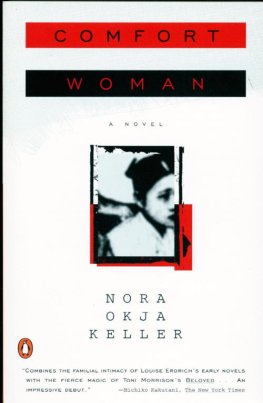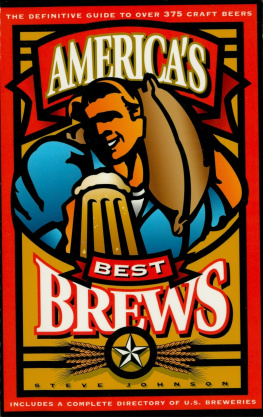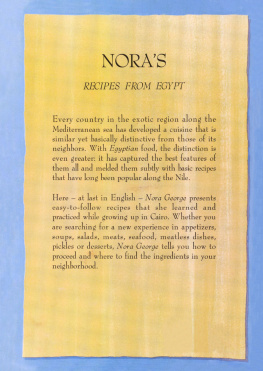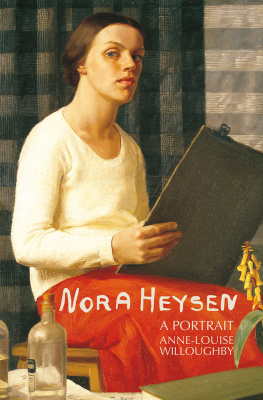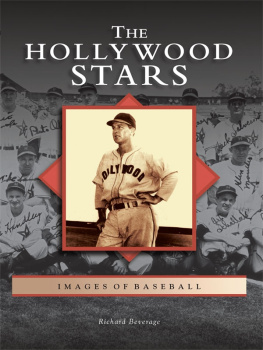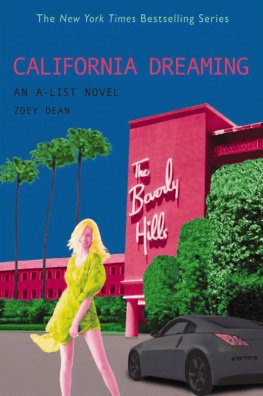COAST TO COAST
Coast to Coast: A Family Romance
Perfect Together
Uncharted Places
Tender Offer
The Two of Us
You Can Go Home Again: An Intimate Journey
Flashback: Nora Johnson on Nunnally Johnson
Pat Loud: A Womans Story
Love Letter in the Dead-Letter Office
A Step Beyond Innocence
The World of Henry Orient
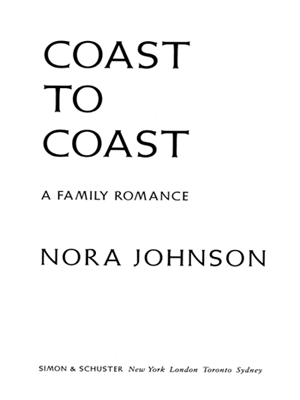
Atheneum Books for Young Readers
An imprint of Simon & Schuster Childrens Publishing Division
1230 Avenue of the Americas, New York, New York 10020
www.SimonandSchuster.com
This book is a work of fiction. Any references to historical events, real people, or real locales are used fictitiously. Other names, characters, places, and incidents are products of the authors imagination, and any resemblance to actual events or locales or persons, living or dead, is entirely coincidental.
The names and other identifying characteristics of some people have been changed.

SIMON & SCHUSTER
Rockefeller Center
1230 Avenue of the Americas
New York, NY 10020
Copyright 2004 by Nora Johnson
All rights reserved, including the right of reproduction in whole or in part in any form.
SIMON & SCHUSTER and colophon are registered trademarks of Simon & Schuster, Inc.
For information about special discounts for bulk purchases, please contact Simon & Schuster Special Sales: 1-800-456-6798 or business@simonandschuster.com
Book design by Ellen R. Sasahara
PHOTOS FROM THE AUTHORS COLLECTION
Manufactured in the United States of America
10 9 8 7 6 5 4 3 2 1
Library of Congress Cataloging-in-Publication Data
Johnson, Nora.
Coast to coast : a family romance / Nora Johnson.
p. cm.
1. Johnson, NoraChildhood and youth. 2. Novelists, American20th centuryBiography. 3. Adult children of divorced parentsUnited StatesBiography. 4. Motion picture producers and directorsUnited StatesFamily relationships. 5. ScreenwritersUnited StatesFamily relationships. 6. Hollywood (Los Angeles, Calif.)Biography. 7. New York (N.Y.)Biography. 8. Johnson, NunnallyFamily. 9. Johnson, NoraFamily. I. Title.
PS3519.O2833Z463 2004
813.54dc22
[B]
2004045392
ISBN 0-7432-3447-2
eISBN-13: 978-1-4391-0457-6
ISBN-13: 978-0-7432-3447-4
For Jon
who didnt stay around till this was finished
And for Jones
who got me to write it in the first place
PERSEPHONE
EVERY JUNE I went to California and every fall I came back. In 1947, when I was fourteen, my parents decided I was old enough to cross the country alone. My motheron the East Coastgave me a pile of books. And my fatheron the Westas usual knew somebody in the Business who would be on the same train.
The connection in Chicago between two trains at different stations was considered daunting enough to require help. The man from the William Morris office met me at LaSalle Street Station when I arrived on the Twentieth Century. He saw to my luggage, bought me a hamburger, fries, and a black-and-white milkshake, and told me funny stories about all the kids he picked up and delivered to train stations and airports. He took me to Dearborn Station, found the Chief, and located my roomette. There was one of him in every city of the world, I discovered over the yearsa man from the Morris office who turned up and took care of things, a guardian agent of the open road.
And he was trustworthymore than my own mother. Once, at Grand Central, she had left me in the observation car of the Twentieth Century so I could more fully observe the South Bronx on the way out of town. She kissed me good-bye and left. After over an hour I went outside to find that this observation car had not been attached to the rest of the train, which had departed with the luggage and the accompanying nanny (who was absorbed in Silver Screen) but without me. Somehow it got solveda weeping child and a kind Stationmaster were an effective combination, and we were all reunited in Chicago in time to get on the Chief. The man from Morris would never have allowed such a thing to happen.
This trips celebrity was Miss Lena Home. She hung on the step of the Chiefs silver Pullman car, one hand grasping the steel railing. She was dazzlingthe clear silky skin, the big sparkling eyes, and a graceful way of bending slightly backward, causing her ivory cloak to flare behind her. Her smile threw me and the man from the Morris office into half-shadow as she extended one perfect hand, with pale almond nails, toward me.
Why, hello, sweetheart, she said. Im so glad to meetcha! Moments like this I saved up to tell my school friends, who couldnt hear enough about movie stars. I tried to will my stuck voice into speech, but I was like the tongueless man who sold pencils in front of Bloomingdales. Miss Home, wearying of my nonperformance, looked past me to a young man of about my age standing nearby with his guardian. The man from William Morris greeted the man from MCA as Miss Home crooned, Greg-rey darlin, and flung her arms around the young mans neck. The two chattered away like old buddies till she told us good-bye and retreated into the train. Through the windows I saw her cloak fluttering after her as she went along the corridor to her compartment.
Gregory and I exchanged greetings, his friendlier than mine, while the two agents took care of the details that we were thought too helpless to take care of. I knew him a little. The son of a director friend of my fathers, he and I had been at a couple of dances together. He was nice-enough looking except for a startling cowlick and a too-early beard that had not been skillfully shaved, and his nails looked seriously chewed. Whether there was anything important wrong with him is impossible to say, because I had not yet learned that boys of less than perfect appearanceeven the sort that might well improve in a few yearsmight have very good qualities, and I had the patience of a flea anyway.
Gregory was one of those rare fifteen-year-olds who knew how to talk. The boys I met at school dances, whose looks and fancy footwork rendered me all a-twitter, were something else off the dance floorthey shuffled and mumbled, blurted out football scores or funny stories about dormitory sadism. Since I thought this was mainline male behavior, Gregorys poise made me suspicious. It wasnt masculinemasculine was inarticulate. He was pushyboys should be cool and self-involved. Their hair should lie flat, and I preferred incipient depressionwhich I called soulfulnessto affability. And he was a terrible dancer. Now he and I would have the pleasure of each others company for the next forty-eight hours.
Id logged a lot of time aboard streamliners. I didnt need the typed instructions from my father (Get to the dining car at the first gong go to the club car if you just want a sandwich, etc.). The Chiefs mystique made me happy in a unique, incoherent wayfrom the starched white antimacassars and scratchy seats and satiny aluminum windowframes to the pull-down steel sinks that emptied out onto the tracks and the tiny linen towels and the tidy ashtrays set into the chair arms and the diesel smell. I loved the dining car with its padded tablecloths and the Santa Fe china with the profile of an Indian chief in full warbonnet and the lamb chops with paper frills and the little oval dishes of peas and mashed potatoes, the Parker House rolls and strawberry shortcake of Fred Harvey, whoever he was, who Served the Meals.
Next page

